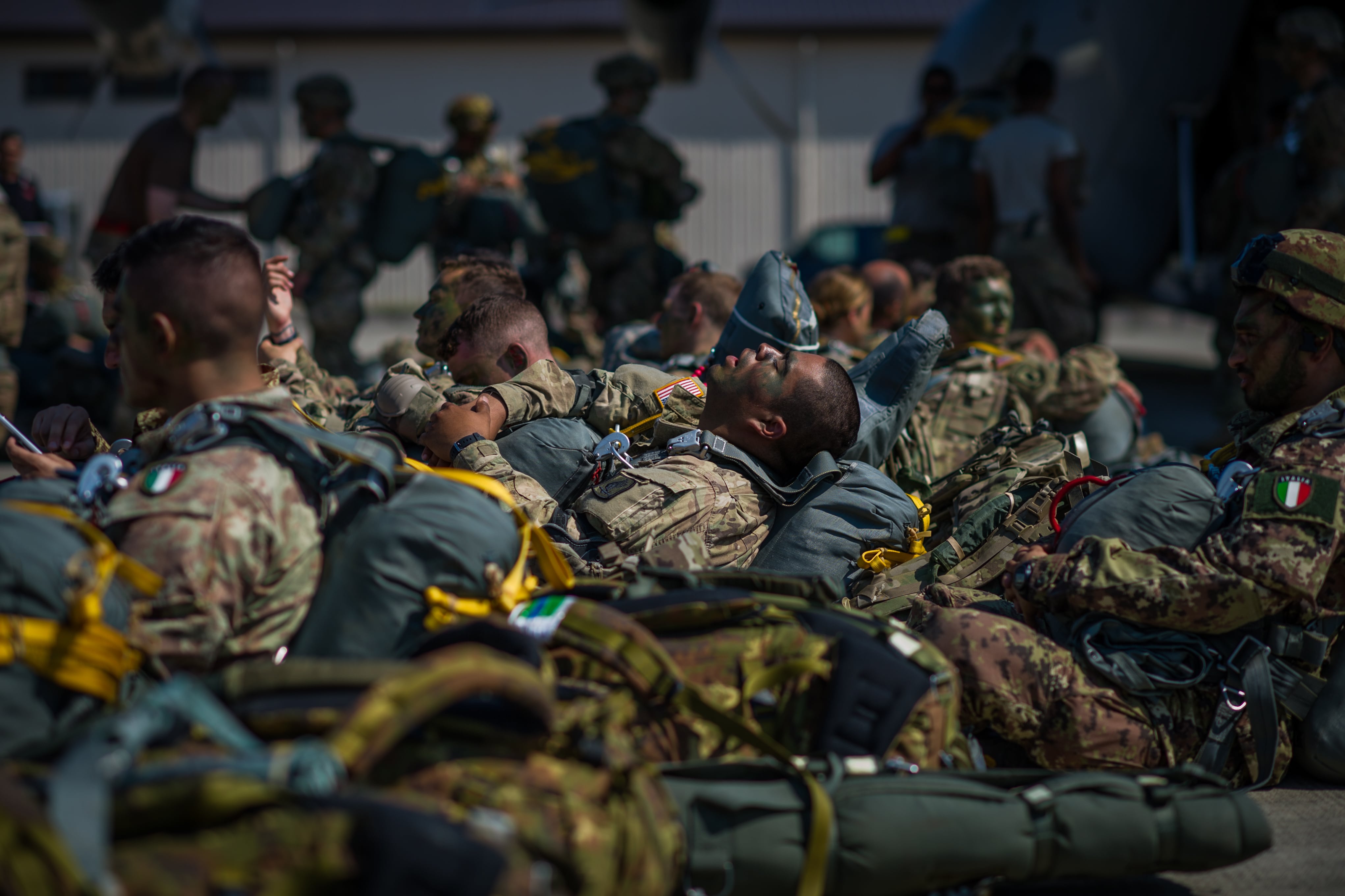FORT EUSTIS, Virginia – Army cadets at West Point are getting a healthy dose of training on all-around fitness that goes beyond sweating it out in running shorts by using advanced physical and psychological tools to ensure high-level performance.
Each cadet already must compete on an athletic team as part of their curriculum, but in recent years, leaders at the U.S. Military Academy at West Point, New York, have also improved basic fitness fundamentals, using the Army’s new Holistic Health and Fitness program. The H2F program looks at mental, spiritual and physical health, with added goals for exercise, nutrition and sleep.
West Point cadre revitalized fitness training through revamped military movement coursework and started training future graduates to plan not only their own fitness routines but build programs for soldiers.
RELATED

Col. Nick Gist shared those changes and others with attendees at the Army’s second annual Holistic Health and Fitness Industry Day and Exposition here at the headquarters for Training and Doctrine Command on Tuesday.
“The Army wants and we need a hybrid athlete,” Gist said. Despite gains in technology, he said soldiering remains, “a very physical profession.”
Gist serves as the West Point director of physical education but also carries a much cooler-sounding title, “Master of the Sword.”
That title is a throwback to the academy’s historic focus on drill, ceremony, weapons handling and cavalry training for cadets.
Lt. Col. Matthew Magennis, West Point director of fitness education, laid out some of the data-driven work that the academy is going after within its H2F framework.
Cadets are measured for the following physical fitness characteristics: muscular endurance, aerobic endurance, power, anaerobic endurance, agility/speed, muscular strength and strength to body mass ratios.
Those figures are then used to build an individual cadet profile.
The work goes beyond gathering data. Cadets, Magennis said, are asked to analyze their own data and backtrack what habits or behaviors led to the performance measures they’ve hit or missed.
The cadets then plan a more scientific approach to correcting any deficiencies and write their own program to improve.
In the mental space, Dr. Jen Schumacher, West Point assistant director of the performance psychology program, showcased mental visualization work that cadets use ahead of rifle range shooting, athletic events and even academic testing.
Schumacher and her colleagues have added tech to the mental picture. They’ve given some cadets sessions in virtual reality simulators to help envision successful completion of certain tasks.
Beyond visualization, Schumacher and her team also look to helping cadets look to the “why” of what they’re doing at the academy and in the Army. That helped with finding meaning and purpose in their path at the academy through guided talks, goal setting and proactive planning.
“We so often get caught up in the outcome, what will be my score on the (Army Combat Fitness Test)? Will I get that promotion…? And we fail to focus on the process. I call it a focus on the inputs” she said.
Few know the actual outcome of what all their efforts might be, Schumacher said. But having a focus on what the individual can put their effort behind helps cadets better grasp what they can control.
One such example helps teams of cadets focus on the process in a tangible way.
The challenge is called the “helium hoop.” And it puts a team of cadets on a hula hoop, each resting their portion of the single hula hoop on one finger, she said. They’re trying to lower it together. Often the hoop slides all over the place...at least at first.
But, as soon as they start focusing on commands and coordinate their movements together, the hoop starts lowering uniformly, she said.
Those activities and other mental resiliency-building drills help cadets see context and room for lifelong improvement.
“I don’t have to be a finished project right now,” Schumacher said cadets tell her. They see that even at graduation, they’re not done learning. Which is what the Army wants, she said, lifelong learners.
Todd South has written about crime, courts, government and the military for multiple publications since 2004 and was named a 2014 Pulitzer finalist for a co-written project on witness intimidation. Todd is a Marine veteran of the Iraq War.





